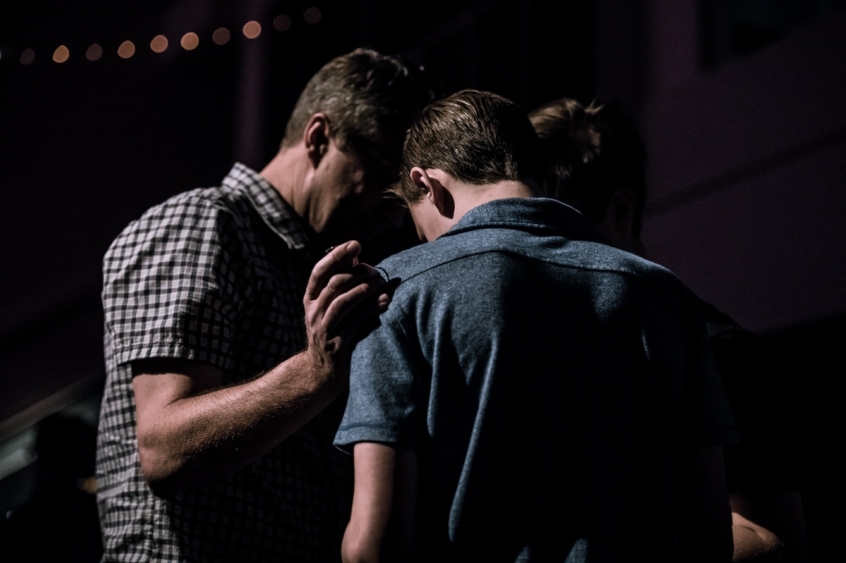How should we welcome newcomers to our churches? It's a difficult one. Some churches go the whole hog, with greeters, information desks, cards in the pews and follow-up visits. Others go to the other extreme, conveying an atmosphere like the lonely pub in An American Werewolf in London, where every eye swivels toward the hapless visitor/victim.
So where do we draw the line between treating the first-timer as a potential recruit, weighing up their potential value in terms of revenue and volunteering capacity, and as a distasteful disturbance to the status quo?

Some idea of the possible range of responses is given in a LifeWay survey into how US Protestant churches welcome visitors. Some of it is rather alarming reading, at least to British eyes. Almost all have greeters at the entrance and an opportunity to meet the pastor after the service (presumably a handshake on the door). But some 69 per cent set aside time in the services where regular attenders can welcome guests, while 17 per cent actually invite guests to stand and identify themselves publicly. And 65 per cent host periodic information sessions so people can find out more about the church, while 83 per cent invite them to fill in contact cards. No less than 42 per cent give a gift to visitors, with the most popular choice being a mug or cup.
It all seems terribly well-organised, though it's worth saying that practices vary quite widely according to the size of church, its ethnic makeup and whereabouts in the country it is.
A survey like this, though, does highlight a real issue. If someone turns up at church out of the blue, we – the pastor and regular attenders – will probably have no idea why they are there. They might have had a huge falling-out with their previous church and be shopping around. Perhaps it was someone else's fault, or perhaps they are just difficult people who will fall out with everyone in due course. Or they might be returning to church, and to faith, after a period of absence. Perhaps they have faced, or are facing, a family tragedy. Perhaps they are spiritual seekers, with very little experience of church life at all.
It's this wide variety of possible situations that ought to make us very thoughtful about exactly how we welcome people. Asking them to stand so everyone can get a good look at them might not, to say the least, be very helpful if someone wants for their own good reasons to remain anonymous. But neither is a brusque request for them to move because 'that's my seat'.
What should shape our approach to people we don't know is an awareness of their unique individuality – and above all, a desire not to recruit them to the church, but to draw them nearer to God. Part of that means acknowledging their presence and making them welcome, opening the channels of communication so that they can feel as much a part of the congregation as they wish. But it should never involve sales techniques or pressure, subtle or otherwise, to stay.
Some people have a gift for welcoming people, and these members of our congregations should be identified and encouraged. Others, if we're honest, should be kept as far away from newcomers as possible. And most churches probably have strategies in place to free up their pastor from the talkative congregant who monopolises her when she desperately wants to talk to that stranger who's just walked in ('So sorry to interrupt, but would you mind helping me move these chairs?').
'Do not forget to show hospitality to strangers, for by so doing some people have shown hospitality to angels without knowing it,' says the Bible (Hebrews 13:2). How would we treat an incognito angel?
Follow Mark Woods on Twitter: @RevMarkWoods.













